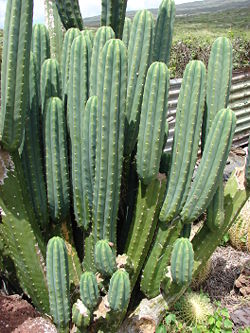Two great presentations to cover tonight from two experts in shamanism.
 Author Hillary Webb gave a spell-binding talk about her participatory research into Andean cosmology. When she asked a respected Andean shaman about the worldview of complementary dualism that is at the heart of his culture, he replied, “It’s best to download it from the cosmos.” So she did, by grace of a San Pedro ceremony high on a mesa top.
Author Hillary Webb gave a spell-binding talk about her participatory research into Andean cosmology. When she asked a respected Andean shaman about the worldview of complementary dualism that is at the heart of his culture, he replied, “It’s best to download it from the cosmos.” So she did, by grace of a San Pedro ceremony high on a mesa top.
Such participatory research can be helpful in breaking down constructs in order to perceive reality as it is experienced through other cultural mazeways. Guided by ritual experts, Webb described a new level of intuitive being-in-the-world that opened her up into “the place between will and surrender.”
There is also a psychogeographical element to these rituals which are often held in the middle of the mesa, between two ritually barren grounds. Note that these councils, as I understand them, are hybrid ceremonies meant to introduce Westerners to Andean ways of being. By participating in shamanic tourism, Webb became not only a participant in a cross-cultural ritual but also an observer to her own ways of thinking.
Another great talk about shamanism was presented by Anthropologist Diana Riboli. She discussed her fieldwork in peninsular Malaysia, with a group of indigenous cultures known as the Orang Asli. Here, shamans transform into animals in order to gain power, protect individuals and villages, and communicate with the forests.
Malaysian shamans often perform their shamanic journeys from dreams as well as light trance-state. However, there is no distinction between sleeping dreams and trances; both are considered the portal to the spirit world.
Riboli’s work is important for dream ethnography because she is correcting for earlier work done in the 1930s by the infamous Kilton Stewart , whose fabulous reports helped inspire the modern American dream movement as well as rekindle interest in lucid dreaming. Unfortunately, Stewart’s reports about the Senoi, also an Ornag Asli culture, are not considered trustworthy by many dream researchers and anthropologists, who lump him in the same category as the charismatic Carlos Casteneda: truthful, yes; honest, no.
Like many places in the world, shamanic knowledge is dying out as elders are not able to pass on their skills in a culture that is increasingly fractured by changing economic conditions brought on by globalization. However, Riboli mentioned that some young people are training as shaman, and have promised that they will perform an important ritual for their communities in a few years time.
Sounds like a good conference…
On the last point, I’ve just returned from the World Psychedelic Forum in Basel (review to come…), where I think Dennis McKenna made the point that when young members of tribes see Westerners who are really interested in and respectful of their shamanic traditions, they’re often more impelled to go back to their traditions rather than go get a job in the city or sawmill or whatever. I’m cynical about shamanic tourism, but maybe it does serve to counterbalance some of the Western propaganda about what us “successful”, “powerful” cultures value. People who buy our own myth about us being happy, having discovered the keys to living in comfort, need to know that it’s not that clear-cut.
Good point, Gyrus. I also have mixed feelings about shamanic tourism, but in this global economy, we really are “all one” for better or worse. I believe Hillary Webb’s research walks the line carefully. Westerners can be students of ancient knowledge, but at the end of the day it’s best if we “get our own dreamtime,” ie remember that we have ancestral connections to shamanic knowledge as well. I’ll be reviewing Anthropologist Evgenia Fotiou’s research soon, BTW, which looks into the details of the ayahuasca tourism business in Peru.